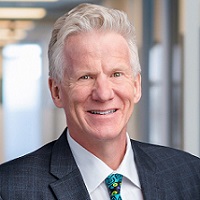 By Nick van Terheyden aka Dr Nick, Principal, ECG Management Consulting
By Nick van Terheyden aka Dr Nick, Principal, ECG Management Consulting
Twitter: @drnic1
Host of Healthcare Upside Down – #HCupsidedown
We all appreciate convenience. When we’re trying to obtain a product, service, or resource, we tend to look for the path of least resistance. Why call a restaurant for a reservation when you can make one online? Why drive to a store to buy something when you can have the same item delivered to your doorstep (less expensively, and maybe even on the same day)?
Episode NOW on Demand
But as it concerns US healthcare, that same level of convenience mostly remains nonexistent. Accessing care is filled with lots of steps, a host of forms to be filled out (often more than once), and usually long waits. Ease and efficiency continue to elude us.
Then again, our inconveniences in the US are minor compared to those in other parts of the world. In rural Liberia, in West Africa, getting to a healthcare facility may involve a long trek—on the back of a motorcycle, if you can find one and can afford it.
But as Katie Main, MD, explains, there are also lessons we can learn from Liberia. Dr. Main has been volunteering in rural Liberia with an NGO. On this episode she shares some of her experiences in the field, describes the life-changing impact of portable ultrasounds, and talks about removing barriers to care—wherever care occurs. Below are a few excerpts.
Healthcare in rural Liberia.
“Coming from a US background, I’m used to having my physician at my fingertips. I can write them an email, and they can say, ‘Come to the office.’ That mindset doesn’t really exist here. For a long time in Liberian history, they’ve been struggling with infrastructure—from a variety of different standpoints, but predominantly in healthcare, due to their civil war, an Ebola outbreak, and then subsequently, the COVID-19 outbreak. So healthcare infrastructure, as we think about it—clinics, ERs, operating rooms—[they’re] still building it, especially in more rural areas of the country. A lot of patients require multiple hours on a motorcycle, or walking on dirt roads, to get to healthcare facilities. So every time we as providers see them, it’s a huge opportunity to connect them with resources and figure out what we can do to support them. We’re still building a lot of infrastructure here; the Liberians are very hardworking and dedicated people, and it’s been a privilege to work with them, but it’s still growing.”
Building infrastructure and trust.
“From my time here, I’ve come to learn that the healthcare infrastructure was a little bit stronger prior to the Civil War and the Ebola outbreak, but subsequently, things have really broken down. And so a lot of people, especially people in their 30s and 40s, have not grown up with that same infrastructure that we’re [accustomed] to, and they’re used to relying on more traditional methods of healing. Changing that mindset to say, ‘Maybe I do need to see a provider in order to get my condition treated,’ is a bit novel for a lot of Liberians, and the concept of seeking care at a clinic is still growing. Continuing to follow up and build that trust, that relationship with a provider, is good.”
Using technology to improve convenience—and relationships.
“One of the tools that I’ve had the privilege of using here is a portable ultrasound machine. It can be super helpful at the bedside. And honestly, the patients are really grateful because it means they don’t need to travel for another day for another visit to get that ultrasound done by a different provider. It’s potentially saving time and money for the patients. And again, you’re still building that trust in the system. If you’re able to show that you’re there for them and want to get a better sense of what’s going on, they’re more interested in coming back to see you or see somebody else on the team. I think access to education and to these kinds of easy-to-use, portable technologies like ultrasound can be a huge change for a lot of communities. The potential benefits are unlimited.”
About the Show
The US spends more on healthcare per capita than any other country on the planet. So why don’t we have superior outcomes? Why haven’t the principles of capitalism prevailed? And why do American consumers have so much trouble accessing and paying for healthcare? Dive into these and other issues on Healthcare Upside/Down with ECG principal Dr. Nick van Terheyden and guest panelists as they discuss the upsides and downsides of healthcare in the US, and how to make the system work for everyone.
This article was originally published on the ECG Management Consulting blog and is republished here with permission.
